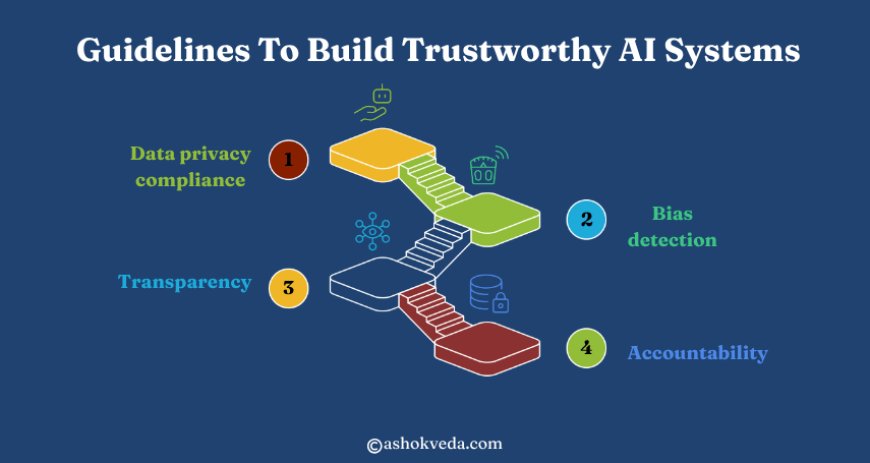How to Implement AI for Startups: A Step-by-Step Guide
Learn how to implement AI for startups in 2025 with step-by-step guidance, tools, strategies, and tips for founders to scale effectively.

Artificial intelligence (AI) has become an essential tool for startups seeking rapid growth and operational efficiency. According to Gartner’s 2025 Tech Adoption Report, over 64% of startups globally have adopted some form of AI in their operations, from customer service bots to advanced predictive analytics. AI-driven startups have shown 30% higher operational efficiency and 40% faster market scalability compared to their non-AI counterparts.
Startups that adopt AI early can streamline their workflows, enhance customer experiences, and make more informed, data-driven decisions. As someone who has worked closely with founders and product teams, I’ve seen firsthand how AI transforms small teams into high-performing, scalable organisations. However, the challenge lies not in the technology itself, but in knowing how to implement AI for startups effectively. This guide provides a step-by-step roadmap, covering strategy, tools, data readiness, and best practices to ensure AI delivers real, measurable business value.
Understanding the Role of AI in Startups
Before you start building AI into your startup, it’s essential to understand its role. AI isn’t just about automation; it’s about enhancing human decision-making and driving efficiency at scale.
How AI Empowers Startups
-
Automates repetitive tasks and reduces operational workload.
-
Enhances marketing precision through predictive insights.
-
Improves customer support with chatbots and sentiment analysis.
-
Optimises sales funnels by identifying purchase intent early.
-
Drives product innovation through data-backed feedback loops.
By aligning your business goals with AI capabilities, your startup can shift from reactive decision-making to proactive, intelligent growth.
Step-by-Step Framework on How to Implement AI for Startups
Step 1: Identify the Business Problem AI Can Solve
AI should not be adopted because it’s trendy; it should be implemented to solve a defined business problem. Ask:
-
What processes consume the most time or money?
-
Where can prediction, automation, or personalization make an impact?
-
How can AI improve customer experience or revenue generation?
Example: A fintech startup may use AI for fraud detection, while an e-commerce startup can use it for product recommendations.
Step 2: Audit Your Data Readiness
AI relies on clean, high-quality, and labelled data. Before building any AI system, assess your existing data sources:
-
What data do you collect currently?
-
Is it structured or unstructured?
-
Do you have customer consent for usage?
-
Are there gaps or biases in your data?
Pro Tip: Start with internal data (like CRM and sales data), then expand to third-party or public datasets once your data pipelines mature.
Step 3: Build or Hire the Right AI Team
Even the best AI tools fail without the right team behind them.
-
Core team members: Data scientists, ML engineers, data analysts, and a product manager with AI understanding.
-
Support roles: Cloud engineers, data architects, and AI ethicists.
-
Alternate option: Partner with AI consulting firms or hire fractional AI experts if resources are limited.
Step 4: Choose the Right Tools and Technology Stack
Depending on your startup’s size, budget, and goals, you can choose between no-code AI tools or custom development frameworks.
No-Code/Low-Code AI Platforms:
-
Google Vertex AI
-
Microsoft Azure Machine Learning
-
DataRobot
-
H2O.ai
For Custom AI Development:
-
TensorFlow or PyTorch (for ML model training)
-
Hugging Face (for NLP and LLMs)
-
Snowflake or BigQuery (for data storage)
-
Airflow or Prefect (for data orchestration)
The right tech stack ensures scalability and reduces technical debt as your startup grows.
Step 5: Start with a Pilot Project
Rather than deploying AI across the organization, start small. Identify a single use case where AI can provide measurable value quickly.
Examples:
-
Chatbot for customer support (NLP model)
-
Churn prediction model for SaaS startups
-
Demand forecasting using predictive analytics
-
Personalized product recommendation engine
Pilot projects help validate assumptions, identify challenges, and secure stakeholder buy-in before scaling further.
Step 6: Ensure Ethical AI Implementation
Ethics is not optional in AI; it’s essential.
Follow these guidelines to build trustworthy AI systems:
-
Data Privacy Compliance: Adhere to GDPR, CCPA, and local data protection laws.
-
Transparency: Explain how AI decisions are made (model explainability).
-
Bias detection: Regularly audit data and algorithms for unintended biases.
-
Accountability: Assign human oversight for all AI outputs that impact users.
Building ethical AI builds credibility and protects your startup from future regulatory or reputational risks.

Step 7: Integrate AI into Business Operations
Once your AI model or tool is tested, integrate it into your existing business workflows.
-
Create APIs to connect your AI system with CRM, ERP, or marketing automation tools.
-
Train your staff to understand AI outputs and use them in decision-making.
-
Automate monitoring systems for performance and drift detection.
Successful AI adoption means making AI a natural part of everyday operations, not an isolated innovation.
Step 8: Measure and Optimize Performance
AI implementation is a continuous process. After deployment, monitor KPIs such as:
-
Accuracy and model drift
-
Cost savings and efficiency improvements
-
Customer satisfaction and retention
-
ROI against project investment
Regular audits and retraining cycles ensure your AI system stays relevant and improves over time.
Common Challenges in Implementing AI for Startups
Even with great planning, startups face hurdles in AI adoption. Understanding these helps you prepare better.
Key Challenges:
-
Limited data or poor-quality data
-
Lack of skilled AI professionals
-
Budget constraints for AI infrastructure
-
Integration with legacy systems
-
Fear of job displacement or resistance to change
Solutions:
-
Start small with open datasets or synthetic data generation.
-
Use cloud-based AI solutions for scalability and cost efficiency.
-
Invest in AI training for existing staff.
-
Foster a culture of innovation and experimentation.
Cost and Time Estimates for AI Implementation
Implementing AI in a startup involves several cost components and timelines that vary depending on the complexity of the use case and the available resources. For starters, data collection and cleaning can cost anywhere between ₹1 to 3 lakh and typically takes 1 to 2 months to ensure the dataset is accurate, well-labelled, and ready for model development. Developing the AI model itself, including training, testing, and initial iterations, can require ₹3 to 6 lakh and usually spans 2 to 4 months, depending on the sophistication of the algorithms and the size of the data. Infrastructure, tools, and cloud services for hosting, processing, and scaling AI models may cost an additional ₹2 to 4 lakh, while integrating the AI solution into existing workflows and conducting thorough testing can take 1 to 2 months and cost around ₹1 to 2 lakh. Overall, startups can expect an average investment of ₹8 to 15 lakh, with a total timeline of 4 to 8 months, though using no-code AI platforms or leveraging cloud credits can significantly reduce both costs and development time.
Note: Costs reduce significantly with no-code tools or cloud credits available for startups.
Real-World Examples of AI Implementation
Example 1: AI in Marketing
Startups use machine learning to personalize campaigns, automate bidding, and optimize ad spend.
Example 2: AI in Operations
Predictive analytics helps forecast demand and optimize logistics routes, saving 15–25% in costs.
Example 3: AI in Customer Support
Chatbots handle 70% of queries automatically, allowing teams to focus on high-value interactions.
Example 4: AI in Finance
AI models detect fraud patterns in milliseconds, protecting revenue and customer trust.
Future of AI in Startups
The AI world in 2025 is transforming decisively:
-
AI democratization: No-code AI is making innovation accessible even for non-technical founders.
-
Generative AI & LLMs: Startups are using GPT-based models for content, code generation, and research.
-
AI + IoT: Smart products and automation tools powered by edge computing are redefining customer experiences.
-
AI Regulation: Ethical and explainable AI is now a boardroom priority.
The startups that succeed will be those that use AI strategically, not just experimentally.
Key Takeaways: How to Implement AI for Startups Successfully
-
Start with clear business goals.
-
Ensure data quality and accessibility.
-
Build the right AI team or partnerships.
-
Choose scalable, cost-effective tools.
-
Pilot first, then scale intelligently.
-
Keep ethics, transparency, and compliance at the centre.
-
Measure outcomes and iterate continuously.
Implementing AI for startups is more than adopting a technology—it’s about driving strategic growth and innovation. By starting with clear business objectives, ensuring high-quality data, building the right team, and selecting scalable tools, startups can transform AI from an experiment into a measurable advantage. Piloting small projects, maintaining ethical standards, and continuously monitoring performance ensure sustainable success. With AI, startups can optimise operations, enhance customer experiences, and make smarter decisions faster. For founders, the key lies in thoughtful planning, iterative implementation, and a focus on value, turning AI into a core driver of business growth.





































